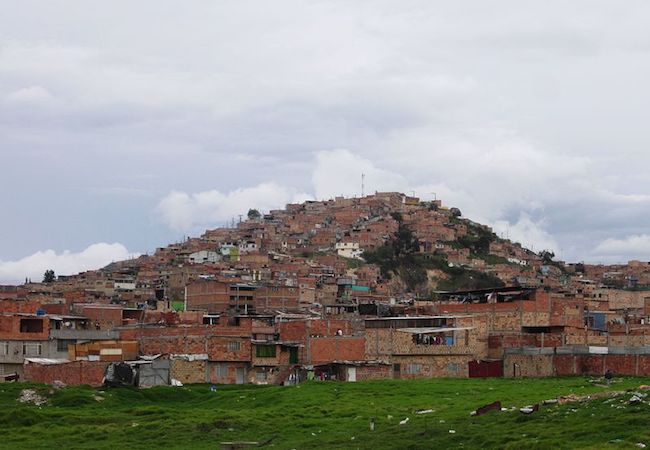What drives Latin America’s lynch mobs

By Jamie Shenk
The mob began to gather at the police station in Acatlán, a small town in Central Mexico, around noon. Inside, authorities were preparing to release Ricardo Flores and his uncle Alberto, who they had determined were innocent of any kind of crime. But the hundred or so people outside believed something different after messages passed around private WhatsApp groups had falsely accused the two men of child abduction and organ trafficking. And they had come ready to take the law into their own hands. They dragged the two men from the police station, savagely beat them, and set them on fire as the police helplessly stood by.
The lynching in Acatlán is not an isolated event in Latin America. In October 2018, False rumors spread via WhatsApp about the disappearances of local children, spurringa mob in Ciudad Bolívar, a marginalized neighborhood in Colombia’s capital city Bogotá, to attack and kill Maikel Eduardo Mares Mabello. The month prior, over 100 Venezuelan refugees fled back into their crumbling country after a mob in the Brazilian border state of Roraima lynched a migrant accused of stabbing a Brazilian man.
In the era of fake news, much of the media coverage surrounding these recent lynchings in Latin America has focused on the role that WhatsApp and other social media sites play in facilitating the spread of unsubstantiated rumors. These reports take on added significance as lawmakers in India have accused the messaging app of facilitating a surge of mob violence there. However, trying to solve Latin America’s spate of lynchings by following India’s example of regulating social media would be like trying to treat a bullet wound with a band-aid: lynchings are not just a reflection of a breakdown of rule of law. They are a cry for social justice.
While vigilante justice is not new to Latin America, the region is currently experiencing what some officials are calling a “crisis of lynching.” In the first semester of 2017, there were 142 lynchings in Mexico alone. In Brazil, where the estimated rate of lynchings averages to about one event per day, the practice is normalized to many who subscribe to the motto: “the only good thief is a dead thief.”
Experts have pointed to a number of phenomena to explain the region’s alarmingly high number of lynchings. Aside from ascribing recent spates of lynchings to social media’s role in facilitating the spread of unsubstantiated accusations, another common explanation points to populations’ frustration with their countries’ weak judicial systems. According to the latest report from Latinobarómetro, a regional polling group, on average fewer than one in four Latin Americans trust their country’s judicial system. Their distrust is justified – half of Latin America’s countries scored at the bottom of the 2017 Global Impunity Index. Convinced that justice will not come through the courts, the theory goes, people are more willing to respond to crimes by taking justice into their own hands.
Lynchings should not be seen as a response to crime alone, however. According to sociologist Angelina Snodgrass Godoy, on a subnational level in Latin America, areas where lynchings are most common do not always correspond with areas experiencing the highest levels of crime. Lynchings are not just acts of violent retribution. Rather, she argues, they represent a “deliberate attempt by embattled communities to reaffirm values that they see as threatened.” In other words, exercising vigilante justice serves as a way for communities to try to come together to regain a feeling of control.
It is easy to understand why some Latin Americans might be craving agency as their countries face a series of slow-moving economic and social disasters. After a period of economic boom in the mid-2000s lifted millions of Latin Americans out of poverty, today only ten percent of Latin Americans, on average, believe their countries’ economies are going well. More than half reported concern for their family’s economic future. Communities inundated by Venezuelan refugees are struggling to cope with the influx of outsiders. Meanwhile, ongoing corruption scandals, marring governments from Mexico to Argentina, provide little comfort for Latin Americans looking to their governments for stability.
These broader contextual factors are ignored in discussions around lynching that focus myopically on social media or law and order. These are appealing short-term fixes, but an increase in police presence or the development of social media awareness programs will not solve the underlying drivers of mob violence in Latin America. What communities need is social justice – to feel like all of their grievances, including those related to security and crime, are being addressed. In practice, this requires investment in programs ostensibly unrelated to security – health, education, and economic development – in marginalized communities.
Social justice, admittedly, is a lofty goal, and it may be unrealistic to expect real gains under governments run by leaders like Brazilian president-elect Jair Bolsonaro, who himself has advocated for vigilante justice. But recognizing the true source and scale of the problem of lynching is a necessary first step. By starting a discussion that acknowledges the structural issues that drive communities to perform vigilante justice, Latin Americans and those who support the region may signal to communities that their cries for justice are being heard.
Jamie Shenk is a Latin America fellow at Young Professionals in Foreign Policy (YPFP) Fellowship Program, and a doctoral student in Sociology and a Clarendon scholar at the University of Oxford. Her research focuses on social conflict and the extractive industries in post-conflict Colombia. She previously worked at the Woodrow Wilson International Center for Scholars’ Latin American Program and Synergy Global Consulting. She graduated summa cum laude from Princeton University with a B.A. in History.




